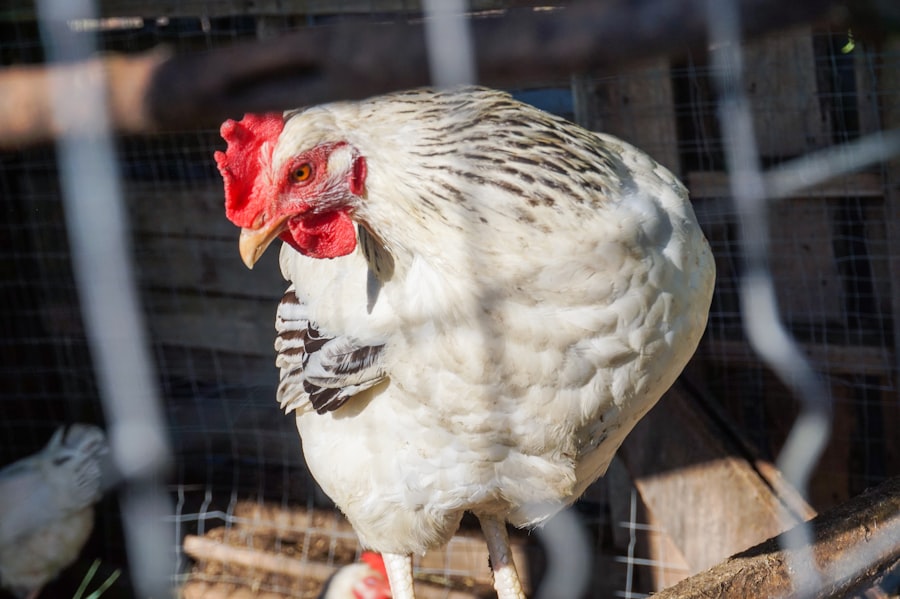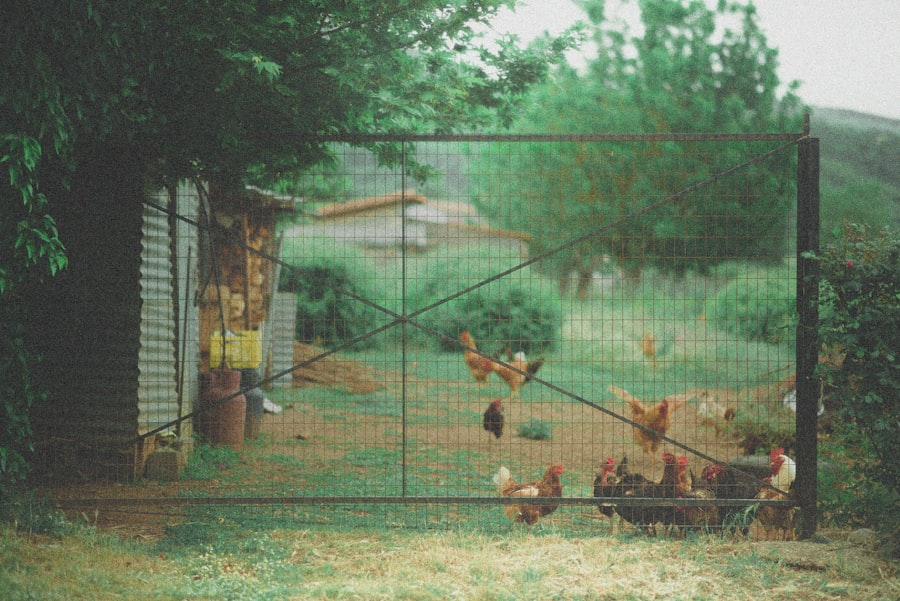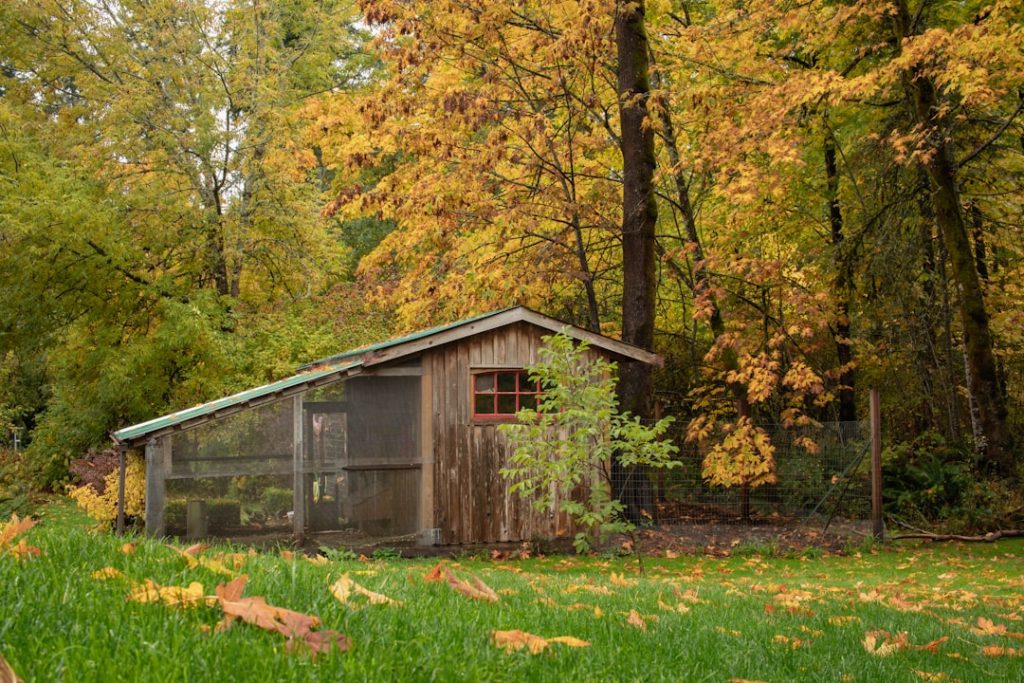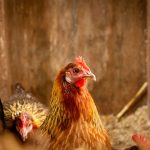Chickens are social creatures that thrive in flocks, exhibiting a natural pecking order with dominant and submissive individuals. Understanding this social structure is essential for maintaining a harmonious flock environment. Adequate space and resources are necessary to prevent aggressive behavior and ensure all chickens have access to food and water.
These intelligent and curious birds benefit from enrichment activities like dust baths, perches, and toys, which provide mental stimulation and prevent boredom. Chickens possess strong natural instincts for foraging and dust bathing. They spend considerable time scratching the ground in search of insects and taking dust baths.
Accommodating these behaviors by creating opportunities for foraging and dust bathing can significantly enhance their well-being and satisfy their innate needs. Additionally, chickens communicate through various vocalizations and body language. Recognizing these signals can help caretakers identify stress, illness, or other needs, enabling better care and ensuring the health and happiness of the flock.
Table of Contents
- 1 Building a secure chicken coop
- 2 Providing adequate space for your chickens
- 3 Creating a safe and predator-proof yard
- 4 Establishing a routine for feeding and watering
- 5 Providing enrichment and entertainment for your chickens
- 6 Regular health checks and maintenance for your chickens
- 7 FAQs
- 7.1 What are some effective ways to keep chickens in my yard?
- 7.2 What type of fencing is best for keeping chickens in the yard?
- 7.3 How can I prevent my chickens from flying over the fence?
- 7.4 What are some tips for securing a chicken coop to keep chickens in the yard?
- 7.5 Are there any natural deterrents to keep chickens in the yard?
Key Takeaways
- Chickens are social animals and have a pecking order within their flock
- A secure chicken coop should have strong locks, predator-proof wire mesh, and proper ventilation
- Each chicken should have at least 4 square feet of space in the coop and 10 square feet in the outdoor run
- Yards should be fenced with buried wire to prevent digging predators and have cover to protect from aerial predators
- Feed and water should be provided at the same time each day, and waterers should be kept clean and free of debris
- Chickens benefit from perches, dust baths, and toys to keep them mentally and physically stimulated
- Regularly check for signs of illness, keep the coop clean, and trim their nails and beaks as needed
Building a secure chicken coop
Protection from Predators
The coop should provide adequate protection from predators such as foxes, raccoons, and birds of prey. This can be achieved by using sturdy materials and secure latches to prevent entry.
A Healthy Environment
The coop should be well-ventilated to ensure good air circulation and prevent the buildup of ammonia from chicken droppings. Proper insulation is also important to keep the chickens warm in the winter and cool in the summer. Furthermore, the coop should be designed with easy access for cleaning and maintenance, including removable nesting boxes, roosts, and flooring that can be easily cleaned and sanitized.
Space and Comfort
It’s essential to consider the size of the coop in relation to the number of chickens you plan to keep. Overcrowding can lead to stress, aggression, and health problems, so it’s crucial to provide enough space for your flock to move around comfortably.
Weather Protection
Lastly, the coop should be designed with protection from the elements in mind. This means ensuring a waterproof roof, adequate drainage, and proper insulation to keep the chickens safe and comfortable in all weather conditions.
Providing adequate space for your chickens

Providing adequate space for your chickens is essential for their health and well-being. Overcrowding can lead to stress, aggression, and an increased risk of disease. As a general rule of thumb, each chicken should have at least 4 square feet of indoor space in the coop and 10 square feet of outdoor space in the run.
This allows them to move around freely, stretch their wings, and engage in natural behaviors such as dust bathing and foraging. Additionally, providing enough space can help prevent aggressive behavior within the flock. When chickens are overcrowded, they may become territorial and engage in pecking or bullying behaviors.
By providing ample space, you can reduce the likelihood of these negative behaviors and create a more harmonious environment for your flock. It’s also important to consider the layout of the space and provide areas for privacy, such as nesting boxes and secluded spots for resting. This can help reduce stress and provide a sense of security for your chickens.
Creating a safe and predator-proof yard
Creating a safe and predator-proof yard is essential for allowing your chickens to free-range without fear of harm. This means securing the perimeter with sturdy fencing that extends underground to prevent digging predators such as foxes and raccoons from gaining access. Additionally, it’s important to cover the top of the yard with netting or wire to prevent birds of prey from swooping down and snatching your chickens.
Furthermore, it’s important to remove any potential hiding spots for predators, such as overgrown bushes or woodpiles. Keeping the yard clean and well-maintained can help reduce the risk of predators lurking nearby. It’s also important to provide shelter within the yard where chickens can seek refuge if they sense danger.
This can be in the form of shrubs, trees, or a small coop or shelter within the yard. By creating a safe and predator-proof yard, you can allow your chickens to enjoy the benefits of free-ranging while keeping them protected from harm.
Establishing a routine for feeding and watering
Establishing a routine for feeding and watering your chickens is essential for their health and well-being. Chickens thrive on consistency, so it’s important to provide food and water at the same time each day. This helps regulate their digestive system and ensures that they have access to essential nutrients throughout the day.
Additionally, it’s important to provide a balanced diet that meets the nutritional needs of your chickens. This includes a mix of grains, protein, vitamins, and minerals. It’s also important to provide access to fresh water at all times, as dehydration can lead to serious health problems for chickens.
Regularly cleaning and sanitizing feeders and waterers is also important to prevent the buildup of bacteria and mold.
Providing enrichment and entertainment for your chickens

Natural Behaviors and Instincts
Chickens have an innate desire to express their natural behaviors, and providing an environment that caters to these needs can help prevent negative behaviors. For instance, offering perches, roosts, and toys can keep your chickens entertained and stimulated, reducing the likelihood of feather pecking or aggression.
Simple yet Effective Entertainment
You don’t need to break the bank to keep your chickens entertained. Simple items like hanging treats or mirrors can provide hours of amusement for your flock. Additionally, scattering food or hiding treats around the yard can satisfy their natural foraging instincts and provide mental stimulation.
A Happy and Healthy Flock
By providing enrichment and entertainment, you can help create a happy and healthy flock. Chickens that are mentally stimulated and engaged in natural behaviors are less likely to develop negative habits and are more likely to thrive in their environment.
Regular health checks and maintenance for your chickens
Regular health checks and maintenance are essential for keeping your chickens healthy and happy. This includes monitoring their overall condition, checking for signs of illness or injury, and providing regular grooming such as nail trimming or feather clipping if necessary. Additionally, it’s important to keep the coop clean and well-maintained to prevent the buildup of bacteria and parasites.
This includes regularly cleaning bedding, nesting boxes, roosts, and feeders. It’s also important to regularly inspect the coop for signs of wear or damage that could compromise its security. Furthermore, providing regular access to dust baths can help keep your chickens’ feathers clean and free from parasites such as mites or lice.
Regularly checking for signs of parasites or illness can help catch potential problems early on and prevent them from spreading throughout the flock. In conclusion, understanding the behavior of chickens is crucial for providing them with a safe and enriching environment. Building a secure chicken coop is essential for protecting your flock from predators and providing them with a comfortable living space.
Providing adequate space both indoors and outdoors is important for preventing stress and aggression within the flock. Creating a safe and predator-proof yard allows your chickens to free-range without fear of harm. Establishing a routine for feeding and watering is essential for maintaining their health and well-being.
Providing enrichment activities can help keep your chickens mentally stimulated and prevent boredom. Lastly, regular health checks and maintenance are essential for keeping your chickens healthy and happy. By following these guidelines, you can ensure that your chickens live happy, healthy lives in your care.
If you’re looking for tips on how to keep your chickens in your yard, you might also be interested in learning about the benefits of using a Snaplock chicken coop. This article from Poultry Wizard discusses the advantages of using a Snaplock coop for keeping your chickens safe and secure in your yard. Check it out here for more information on this innovative chicken coop design.
FAQs
What are some effective ways to keep chickens in my yard?
Some effective ways to keep chickens in your yard include using fencing, chicken wire, electric fencing, and chicken coops with secure latches.
What type of fencing is best for keeping chickens in the yard?
For keeping chickens in the yard, it is best to use a sturdy and tall fencing such as chain link or welded wire fencing. Chicken wire can also be used, but it may not be as durable.
How can I prevent my chickens from flying over the fence?
To prevent chickens from flying over the fence, you can clip their wings or add a cover to the top of the yard to prevent them from flying out.
What are some tips for securing a chicken coop to keep chickens in the yard?
To secure a chicken coop, make sure to use strong latches and locks on all doors and openings. Additionally, consider adding a skirt around the perimeter of the coop to prevent predators from digging underneath.
Are there any natural deterrents to keep chickens in the yard?
Some natural deterrents to keep chickens in the yard include planting thorny bushes or using natural predators such as dogs or cats to discourage chickens from wandering.
Meet Walter, the feathered-friend fanatic of Florida! Nestled in the sunshine state, Walter struts through life with his feathered companions, clucking his way to happiness. With a coop that’s fancier than a five-star hotel, he’s the Don Juan of the chicken world. When he’s not teaching his hens to do the cha-cha, you’ll find him in a heated debate with his prized rooster, Sir Clucks-a-Lot. Walter’s poultry passion is no yolk; he’s the sunny-side-up guy you never knew you needed in your flock of friends!







